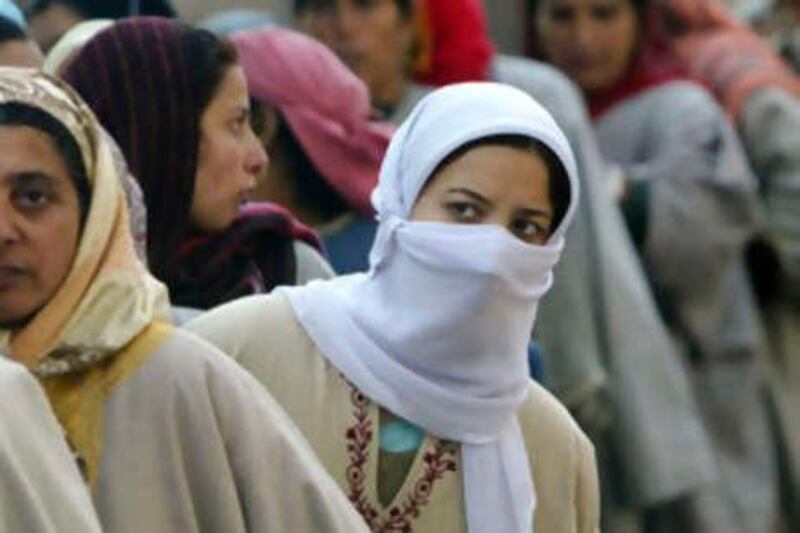SRINAGAR, India // Thousands of troops patrolled streets and guarded polling stations as the second phase of state elections in Indian-controlled Kashmir began today. The elections come after some of the largest protests against Indian rule in Jammu-Kashmir, the country's only Muslim-majority state, and a tough crackdown on separatist leaders. Nazir Ahmed, a local police officer, said voter turnout was low following calls for a boycott by Muslim separatist leaders who oppose the polls, saying they will only entrench New Delhi's hold on the restive region. Thousands of paramilitary soldiers and police officers wearing bulletproof jackets and carrying automatic weapons patrolled as balloting began in towns north of the Himalayan region's main city, Srinagar. About half a million of the state's 6.5 million eligible voters live in the six districts where voting was taking place. Tension in the region heightened after government forces opened fire at an anti-election protest yesterday, killing two Muslim protesters including a teenage student. The protest took place in Baramulla, a town 55km west of Srinagar. Overnight, protesters near Baramulla threw rocks at a motorcade carrying a prominent pro-Indian politician, wounding three of her guards, said a police officer who spoke on condition of anonymity in keeping with department policy. The elections for the state legislature started Nov 17 and are to be held in seven phases through Dec 24. The staggered balloting process allows the government to deploy thousands of government forces in each area in an effort to prevent a repeat of deadly violence during 2002 elections and thwart separatist attempts to enforce the poll boycott. Jammu-Kashmir has been under direct federal rule since July when the state government resigned following a series of violent sectarian demonstrations over a land transfer deal for a Hindu shrine. Protests against Indian rule gathered steam in August and September and at least 48 people died, most when Indian soldiers opened fire on Muslim demonstrators. The government has since imposed curfews to prevent more violence. More than 30 leaders who called for an election boycott have been detained in recent days under a law that allows police to hold people for up to two years without trial. Anti-India sentiment runs deep in Kashmir, where most people favour independence from India or a merger with Pakistan. The region is divided between the two countries and both claim it in its entirety. Militant separatist groups have been fighting since 1989 to end Indian rule. The uprising and a subsequent Indian crackdown have killed about 68,000 people, most of them civilians.
*AP





